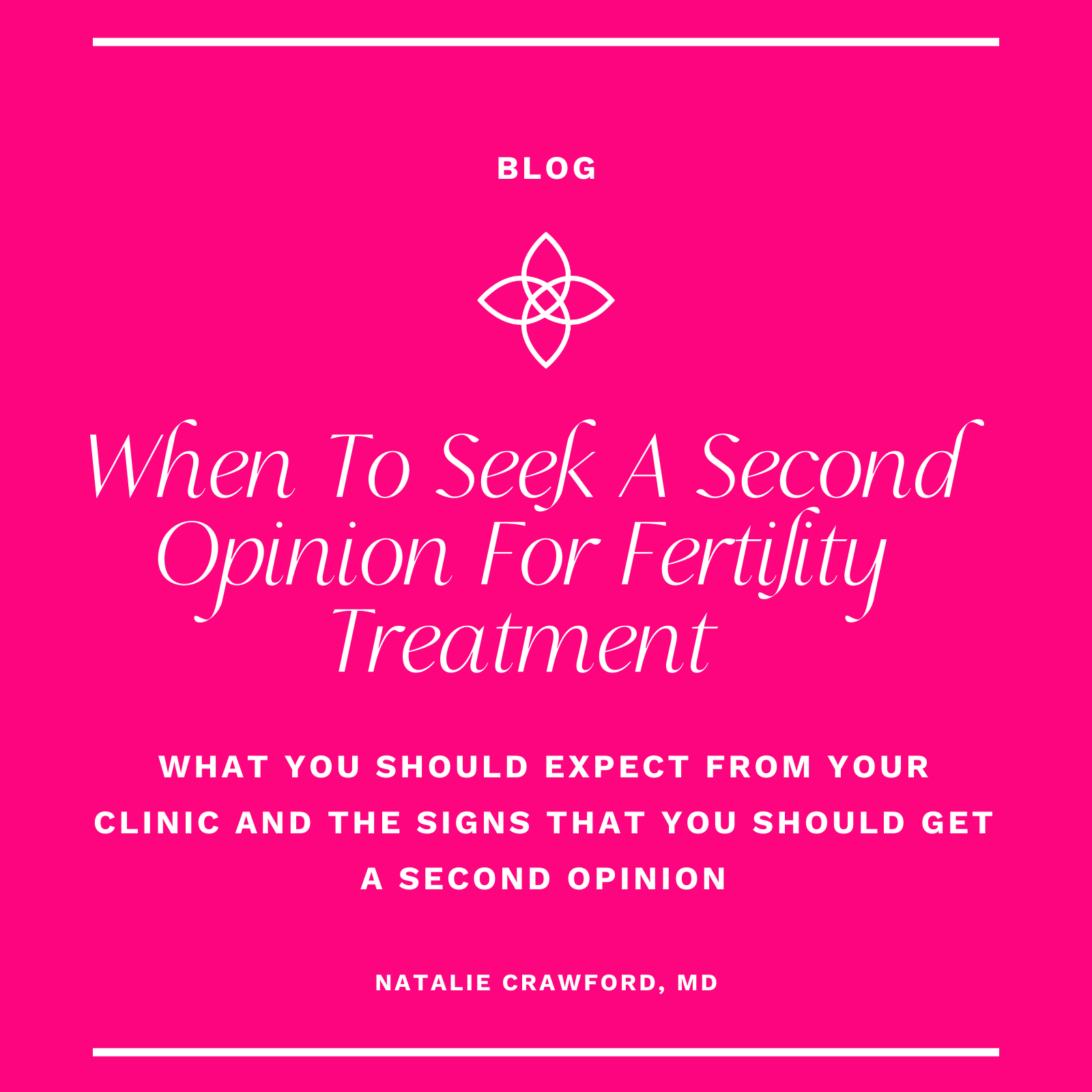Fertility + Hormones + Health + Lifestyle
Welcome to the blog
Infertility Warning Signs
Dr. Natalie Crawford explores the important question of how to know if you might have trouble getting pregnant in the future. While fertility testing can identify current concerns, it cannot guarantee future outcomes, making proactive awareness essential. She outlines six key signs that may indicate a higher risk of infertility and emphasizes the value of early evaluation to make informed reproductive decisions.
Stopping Birth Control: Do You Need a Detox?
Dr. Natalie Crawford breaks down the facts about stopping birth control and debunks the myth that a detox is needed. She explains how the body naturally adjusts once the pill is discontinued and addresses common symptoms like acne and mood swings. With evidence-based insights, Dr. Crawford empowers women to make informed choices about their reproductive health.
Thin Endometrial Lining
Dr. Natalie Crawford discusses what a thin endometrial lining is, what causes it, how it impacts fertility, and what steps you can take to improve it.
Are You Ovulating?
Dr. Natalie Crawford breaks down everything you need to know about ovulation. She explains how to track ovulation, recognize key signs, and understand the role of hormones in the menstrual cycle. With practical tips and expert insights, this guide helps readers take control of their fertility and make informed decisions about their reproductive health.
Understanding Your Ovaries: The Vault and Reproductive Lifespan
Dr. Natalie Crawford breaks down the complexities of ovarian function, egg reserve, and the natural process of reproductive aging. By understanding how the ovaries work, you can make informed decisions about your fertility and overall health.
Understanding Functional Hypothalamic Amenorrhea
Dr. Natalie Crawford explains Functional Hypothalamic Amenorrhea (FHA), a condition where stress, excessive exercise, or poor nutrition disrupt hormone signals, stopping menstruation. She emphasizes proper diagnosis, the importance of estrogen replacement, and a holistic recovery approach.
When to Seek a Second Opinion For Fertility Treatment
Dr. Natalie Crawford, a board-certified fertility physician, frequently consults with patients seeking second opinions after unsuccessful IVF cycles. With a commitment to patient education and personalized care, she emphasizes the importance of understanding expectations, evaluating treatment outcomes, and knowing when to seek further insight. In this discussion, Dr. Crawford explains key factors in determining whether a second opinion is necessary and how patients can advocate for the best possible care on their fertility journey.
Understanding Endometriosis: Symptoms, Risk Factors, and Why Early Diagnosis Matters
Dr. Natalie Crawford emphasizes that endometriosis is a common yet underdiagnosed condition, often taking years for a proper diagnosis. This inflammatory disease causes endometrial-like tissue to grow outside the uterus, leading to symptoms such as severe menstrual pain, chronic pelvic pain, painful intercourse, digestive issues, and infertility. Diagnosis often requires surgery, as imaging may not detect the disease, and risk factors include family history, early menstruation, and frequent ovulation.
Getting Pregnant After Age 40
Dr. Natalie Crawford, a board-certified OB/GYN and fertility doctor, addresses common misconceptions about conceiving at age 40. She highlights that while pregnancy at 40 is possible, fertility rates naturally decline with age, and prior childbirth significantly impacts monthly conception chances. Dr. Crawford emphasizes the importance of early fertility evaluations, healthy lifestyle choices, and understanding individual reproductive health. She also dispels harmful myths, advocating for informed decisions and personalized medical care for those pursuing parenthood later in life.
Understanding Ovarian Cysts: What's Normal, What's Not?
Ovarian cysts are a common occurrence, but they can also be a source of confusion and concern for many women. Dr. Natalie Crawford, a board-certified OB/GYN and fertility specialist, breaks down the different types of ovarian cysts, what's considered normal, and when they may require further attention. In this informative blog post, she provides a comprehensive overview of ovarian cysts, empowering readers to better understand this aspect of their reproductive health.
How Many Eggs Do You Need To Get A Normal Embryo?
Dr. Natalie Crawford, a board-certified OB-GYN and fertility specialist, discusses a recent study on the number of eggs needed to produce a normal embryo, published in Fertility and Sterility.
Can You Get Pregnant With One Fallopian Tube?
Dr. Natalie Crawford, a board-certified OB-GYN and fertility specialist, explains that while it is possible to get pregnant with one fallopian tube removed, the success rate depends on the cause of the blockage and the overall health of the reproductive system.
The PCOS Diagnosis
Dr. Natalie Crawford discusses PCOS (Polycystic Ovarian Syndrome), emphasizing its diagnosis and management. She explains the updated Rotterdam criteria, which include irregular periods, high androgens, and a high follicle count.
Low Sperm Counts and Male Fertility
As a fertility doctor, I talk about sperm all the time. It's a topic that many people don't feel comfortable discussing, but it's so important when it comes to fertility and family building. Let’s break down the basics of sperm counts and male fertility so you can be informed and empowered.
Understanding Ovarian Failure, Perimenopause, and Your Hormones
Dr. Natalie Crawford's discusses the complex topics of ovarian failure, perimenopause, and hormonal changes in women's health. She explains the natural decline of egg count over a woman's lifetime and the importance of understanding the warning signs of hormonal shifts, such as irregular periods and changes in follicle stimulating hormone levels. Dr. Crawford emphasizes the vital role of hormone replacement therapy, particularly for women experiencing premature ovarian failure or early menopause, and importance of finding knowledgeable providers to manage your health and fertility.
The Holidays and Infertility
Dr. Natalie Crawford, who has personally experienced infertility, encourages those struggling to be gentle with themselves, set healthy boundaries, and seek out moments of joy during the holidays. She emphasizes the importance of tapping into a strong support system and communicating your needs, while also prioritizing self-care through activities and traditions that nourish the soul.
Fertility Fact or Fiction
Dr. Natalie Crawford aims to separate fertility fact from fiction and provide women with accurate, evidence-based information to take charge of their reproductive health. She addresses common myths, like birth control permanently damaging fertility, women not being able to get pregnant on their period, and the existence of a definitive "fertility test."
Abortion is Healthcare
As a reproductive health provider, I've seen firsthand how abortion is an essential part of comprehensive healthcare. It's not a political issue, it's a medical one - and one that is critical to protecting the health and wellbeing of people who can become pregnant.
What Your Fertility Says About Your Overall Health
Dr. Crawford discusses how your fertility can be linked to your overall health and well-being. So often, people view fertility and reproductive health as a separate entity, unconnected to the rest of their body and wellbeing. But the reality is that your hormones, your menstrual cycle, and your fertility are deeply intertwined with your whole-body health.
Using Basal Body Temperature To Track Your Cycle
Dr. Natalie Crawford discusses basal body temperature or BBT for tracking your cycle. While it may seem old-fashioned in our digital age, BBT can provide incredibly valuable insights into your reproductive health.





















